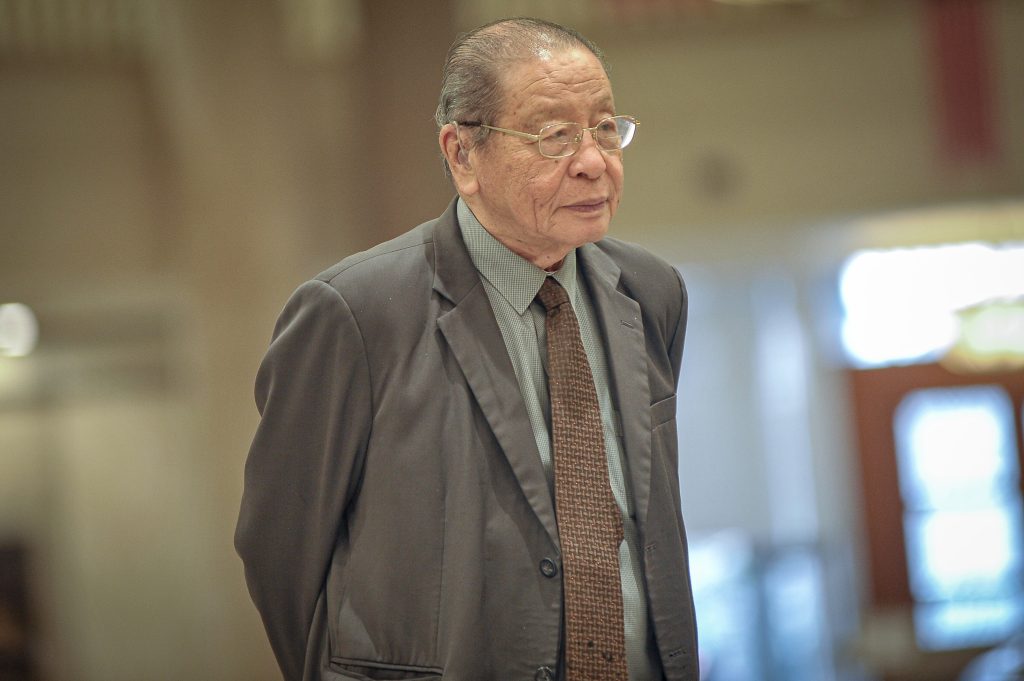Auto Added by WPeMatico


SOMETHING is brewing in the House of Madani and what little has wafted out smells rotten.
To critics, it is stating the obvious. In fact, some argue that it is an understatement because the stench is overwhelming.
A sniff of the odour came almost immediately after the DAP was wiped out in the recent Sabah polls and that sparked a mutiny of sorts, directed at Prime Minister (PM) Datuk Seri Anwar Ibrahim, who is chairman of Pakatan Harapan (PH), of which the DAP is a member.
Just over a week after the devastating defeat, the DAP brought an ultimatum to Anwar’s table, stating that if the PM failed to deliver meaningful reforms within the next six months, the DAP would reassess its role in the government, party secretary general Anthony Loke was quoted as saying.
But the ultimatum had no threat of consequence as Loke, reportedly, was quick to add that the DAP would not let the government fall until the next general election (GE).
He was further quoted as saying that if the DAP withdrew all of its 40 seats, the government would collapse.
If Loke made the statement to reassure the PM that the DAP would stand by him, it is widely read as a veiled threat, of which the DAP is reminding that it has the largest number of seats compared with the other partners and that if it chooses to withdraw, the government would collapse.
But there are other things at play which added to the stench.
Firstly, the fact that the DAP gave Anwar six months for meaningful reforms. That is already a red flag.
In a backhanded way, the DAP has now affirmed widespread criticisms that in the three years as PM, Anwar had failed to deliver anything meaningful, reforms et al.
Obviously, this amplified opinions that the DAP felt the blame for part, if not all, of its wretched performance in the Sabah polls was because of Anwar.
Though in not as many words, at least not publicly, the fact that the DAP demanded Anwar to make meaningful reforms in the next six months just after the Sabah debacle, is as good as them blaming it on Anwar.
Secondly, what raises much speculation was what reforms did the DAP expect of Anwar, except for the recognition of the United Examination Certificate (UEC).
The DAP may not realise it, but raising the UEC recognition only revived views of its chauvinism and racial interests.
Lest the DAP had buried its head in the sand, public disaffection towards Anwar and the government, which included the DAP, was over issues of corruption and selective persecution or the use of the anti-corruption agency against political opponents.
Apart from that, instead of reforming draconian laws such as the Sedition Act as promised, the government had been using it against their political opponents.
Unfulfilled promise of the election manifesto is a sore point. Not less sore are issues of nepotism, of which Anwar’s daughter Nurul Izzah is of essence, while some parts of the DAP too had been accused of similar indulgence.
While the DAP may not be outrightly implicated in the ascension of those they accused of corruption prior to the formation of the government, it is guilty by association.
The list goes on and on, and if there are any reforms expected of the DAP and the government, it would be of the deeds they have committed since they took the helm.
As such, it is not surprising that when the DAP raised the spectre of the UEC while demanding Anwar deliver meaningful reforms, accusations that it had rolled back to its “comfort” zone of chauvinism caught public imagination.
To make matters interesting is the reaction from Anwar, who not only said out loud that he opposed DAP’s demand to recognise the UEC, but his justification further boxed the DAP as a chauvinist entity.
In Anwar’s own words, he said the demand (for the UEC’s recognition) is only to serve the interest of one race (the Chinese) and one language (the Chinese language).
He added that he opposed the demand and urged those making it to first defend the dignity of the national language.
Anwar also flexed his muscles and said that he did not care who he was (that made the demand), which party and what influence he wielded.
His reply would sit well with Umno, whose leaders had earlier urged the PM not to accede to the DAP’s demand.
Anwar’s bravado in dealing with its most staunch ally can be interpreted as the DAP overestimating its control and influence on the PM and the longevity of the government.
On the flip side, it can be interpreted that Anwar was sure that even without the DAP’s support, he had ample numbers to hold the government and that he was aware the DAP would not want to be in the opposition’s wilderness after tasting the cosiness of power.
For Umno, it will get the bragging rights that its position in the government is not to be trivialised and that it could still oppose the DAP’s chauvinism and defend the primacy of the Malays.
But for those who had been observing the yarns the government had told since its formation, the tale now being told is not as simple as the DAP being put in its place, Anwar growing a spine or Umno rediscovering its raison d’etre.
Truth be told, they came together for the sake of power and not for a cause, hence the ability to stomach each other’s polarity. It may well be a charade, well-choreographed, the smelling-like-roses kind.
Yet, something must have hit the fan.
- This column does not necessarily reflect the opinion of TMR editorial board.
The post Friday Jottings: The measure of the odour unit appeared first on The Malaysian Reserve.


 WE HAVE just become a geographically inconvenient speed bump — a sticky, tropical parking space for two global superpowers who’ve forgotten how to share.
WE HAVE just become a geographically inconvenient speed bump — a sticky, tropical parking space for two global superpowers who’ve forgotten how to share.
 ADVERSITY is part of life, organisations and leadership. At many points in our careers, we will face unexpected tests. Markets turn, teams struggle and strategies shift.
ADVERSITY is part of life, organisations and leadership. At many points in our careers, we will face unexpected tests. Markets turn, teams struggle and strategies shift.
 IT MAY be a bit embarrassing to admit now that one’s family is hopelessly infatuated with Perusahaan Otomobil Kedua Sdn Bhd (Perodua aka P2) cars. In a span of slightly over two decades, we — the parents and five legally road-licensed children — have had nine Peroduas serving us.
IT MAY be a bit embarrassing to admit now that one’s family is hopelessly infatuated with Perusahaan Otomobil Kedua Sdn Bhd (Perodua aka P2) cars. In a span of slightly over two decades, we — the parents and five legally road-licensed children — have had nine Peroduas serving us.
 WHAT are the lessons for DAP after the comprehensive defeat in Sabah? The party is still nursing its bruises from the state elections, a night where all eight seats it contested slipped through its fingers. A wipeout, plain and simple.
WHAT are the lessons for DAP after the comprehensive defeat in Sabah? The party is still nursing its bruises from the state elections, a night where all eight seats it contested slipped through its fingers. A wipeout, plain and simple.